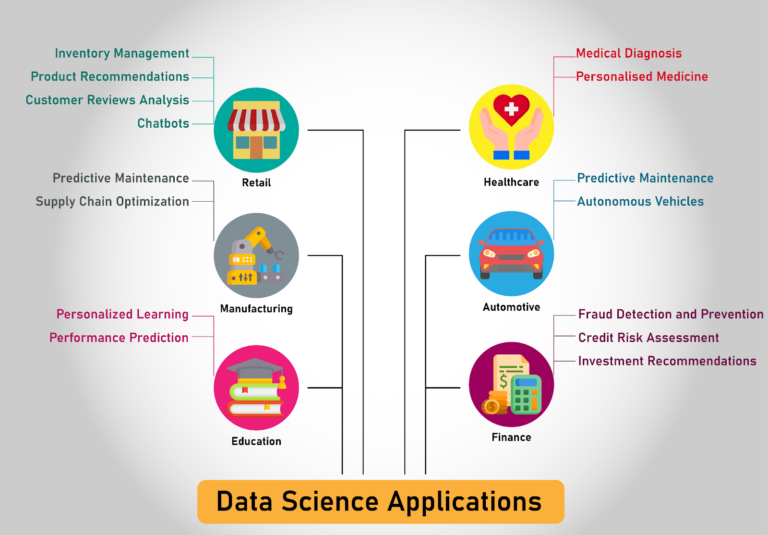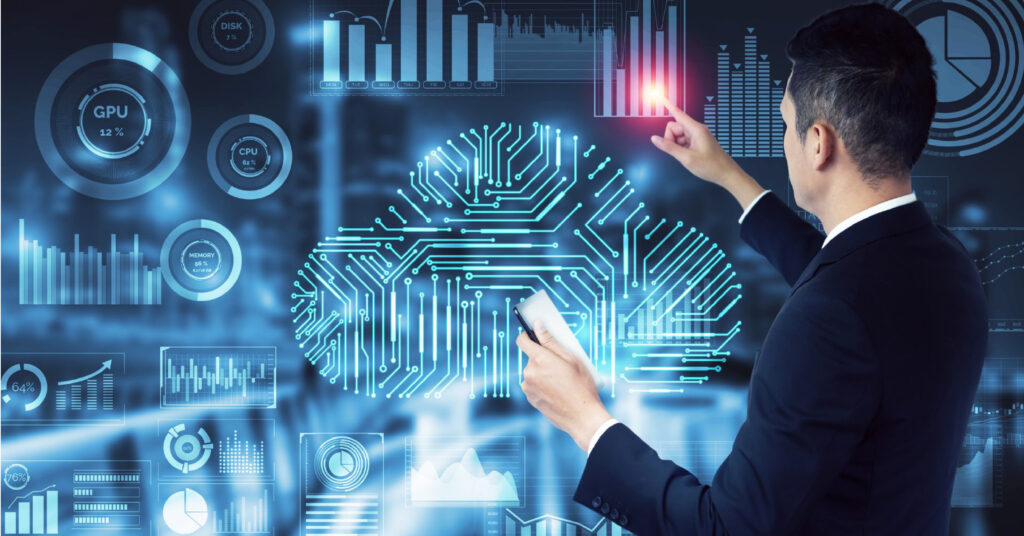In today’s digital era, data science and artificial intelligence (AI) have revolutionized various business sectors. By extracting and analyzing data, organizations can gain valuable insights, identify patterns and build predictive models using machine learning and AI. Over the past decade, we have been unknowingly using products powered by these technologies in our daily lives. Before moving further, let’s take a moment to understand how these technologies shape our daily interactions. Whether it’s online shopping, searching for information, or engaging on social media, data science and AI play a important role in enhancing these experiences.
How Does Amazon Know Which Products to Recommend?
Amazon utilizes machine learning algorithms to analyze user behavior, purchase history and browsing patterns. This enables them to recommend products that are most likely to interest customers, enhancing their shopping experience.
How Does Google Find Accurate Search Results?
Google’s search engine uses complex data science models to analyze and rank web pages. By considering factors such as relevance, content quality and user behavior, Google delivers the most accurate and relevant search results.
How Do Social Media Apps Recommend Content?
Platforms like Facebook, LinkedIn, Instagram and YouTube utilize data science and AI to analyze user interactions, preferences and content consumption patterns. This allows them to recommend personalized content that keeps users engaged.
Applications of Data Science in Various Business Domains

Applications of Data Science in:
Finance
- Fraud Detection and Prevention: Machine learning models can detect unusual patterns and anomalies in financial transactions, helping prevent fraud.
- Credit Risk Assessment: By analyzing historical data, machine learning models can assess credit risk more accurately than traditional methods.
- Investment Recommendations: Data science can recommend investment portfolios based on customer risk profiles and predicted market trends.
Healthcare
- Medical Diagnosis: Machine learning can assist in diagnosing medical conditions based on X-rays, CT scans and historical patient data.
- Personalized Medicine: By analyzing historical data and genomics, machine learning can recommend personalized treatment plans.
Retail
- Inventory Management: Data science can forecast demand for various products, optimizing inventory levels.
- Product Recommendations: Recommending similar products based on customer search queries and interests can increase sales.
- Customer Reviews Analysis: Analyzing customer reviews helps identify common issues with products, informing improvements.
- Chatbots: AI-powered chatbots can handle customer queries efficiently, improving customer service.
Automotive
- Predictive Maintenance: Data science models can predict part failures, reducing downtime and maintenance costs.
- Autonomous Vehicles: Machine learning enables the development of self-driving cars that can make real-time decisions like human drivers.
Manufacturing
- Predictive Maintenance: Similar to automotive, predictive maintenance models in manufacturing can reduce production line downtime.
- Supply Chain Optimization: Data science optimizes supply chain processes and inventory management, enhancing efficiency.
Education
- Personalized Learning: Data science can create personalized learning experiences by analyzing students’ progress and adapting content accordingly.
- Performance Prediction: Analyzing student data helps predict interest and performance across different subjects, enabling targeted interventions.
Social Media
- Content Recommendation: AI algorithms show relevant content to users, increasing engagement.
- Fraud Detection: Data science helps identify and remove fraudulent accounts.
- Targeted Marketing: Machine learning enables targeted marketing campaigns on social media platforms.
With the advancement of generative AI and tools like ChatGPT, the possibilities for applying machine learning and AI have expanded significantly. Data science and AI are essential to developing intelligent products, websites and applications, fostering innovation across sectors. This is just the beginning of a revolutionary journey and the potential for growth and innovation is limitless.
Conclusion
Data science and AI are transforming businesses by providing valuable insights, enhancing customer experiences and driving innovation. As a leading data science course provider, INTTRVU.ai is committed to equipping individuals with the skills needed to harness the power of data science and AI in various business domains. Join us to be part of this exciting journey and unlock the endless possibilities of data science.
FAQs - Applications Data Science
What is data science and why is it important in today's digital era?
Data science involves using algorithms, processes and systems to extract insights from structured and unstructured data. It plays a crucial role in enhancing business decisions, improving customer experiences and driving innovation across industries like healthcare, finance, retail and more.
How does AI enhance our daily digital experiences?
AI technologies, such as machine learning and natural language processing, are embedded in everyday platforms like Amazon for product recommendations, Google for accurate search results and social media apps for personalized content suggestions. These technologies analyze user behavior and data patterns to offer more relevant and engaging experiences.
How does Amazon know what products to recommend?
Amazon uses machine learning algorithms to analyze user behavior, browsing history and purchase patterns. By doing this, the platform suggests products that align with customers' interests, significantly enhancing their shopping experience.
What are the applications of data science in the healthcare domain?
Data science is widely used in healthcare for applications like medical diagnosis (using machine learning to analyze X-rays and CT scans), personalized medicine (creating treatment plans based on patient data and genomics) and improving operational efficiencies in hospitals.
What role does AI play in autonomous vehicles?
AI is at the core of developing autonomous vehicles. It enables real-time decision-making by analyzing data from sensors and cameras to navigate roads and ensure safe driving without human intervention.
How is data science used in fraud detection?
In finance, data science helps detect fraud by analyzing transaction patterns and identifying anomalies. Machine learning models are capable of flagging suspicious activities in real-time, thus preventing fraudulent transactions and protecting consumers.
What skills are required for a career in data science?
Key skills for a data scientist include proficiency in programming languages (like Python, R, SQL), data visualization tools (Tableau, Matplotlib) and machine learning algorithms. Additionally, strong analytical thinking and domain-specific knowledge are crucial.
What is the difference between data science and AI?
Data science focuses on extracting insights from data to drive business decisions, while AI aims to create systems capable of mimicking human intelligence. Both fields use machine learning, but AI typically involves more advanced techniques like neural networks and robotics.



